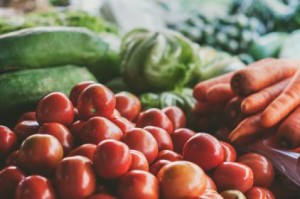How to Prepare Your Garden for an Intensive Garden Experience
 Good things come in small packages, is a familiar statement you have probably heard before. Well, intensive gardening is built on the idea that you can get more out of every square foot of garden than you think. Much more. Intensive gardening is a planting/growing system which relies on permanent planting beds and densely planted crops to ensure rich soil, successful harvesting and practically year-round results. Here’s how to prepare your garden for intensive gardening.
Good things come in small packages, is a familiar statement you have probably heard before. Well, intensive gardening is built on the idea that you can get more out of every square foot of garden than you think. Much more. Intensive gardening is a planting/growing system which relies on permanent planting beds and densely planted crops to ensure rich soil, successful harvesting and practically year-round results. Here’s how to prepare your garden for intensive gardening.
Permanent is Best
Whether you build raised gardening beds or cultivate in-ground beds, the important thing is that you make spaces that can be entirely devoted to growing. In-ground beds will be able to draw up water from deep in the earth while raised beds conserve water with mulch and compost. In either case, a permanent bed will not need nearly as much watering as the traditional row-upon-row garden.
Permanent beds enjoy the best soil because you never compact the soil by walking upon it. Your composted soil will do a better job of holding onto moisture and will deliver a steady release of nutrients for plant consumption. Your soil is easily kept aerated, moist and nutrient-rich.
When you prepare your garden with a permanent planting bed you will have no wasted space which means you can expect more produce within the same square footage. Densely planted crops (as in one per square foot of soil) keep down weeds because the leaves of plants shade the small amount of exposed soil and mulch is able to take care of the rest. Permanent beds are better because they make maximum use of space, provide maximum water and nutrition and grow the fewest weeds.
Dense is Best
Intensive gardening means you cluster crops close together. It is recommended that you place plants in a hexagonal design. As soon as one growing season ends for a certain crop, rip it out and add the remains to your compost pile. Immediately replace that crop with next season’s plant and you can enjoy at least three seasons of gardening bounty.
Raised beds do cost money to construct but are preferable when your best sunshine doesn’t happen in your most convenient part of the lawn. They’re also nice if getting on the ground to clip, mulch and harvest isn’t as easy as it used to be. On the other hand, in-ground beds cost less and will require less watering. It’s up to you to decide which will work best for you and then prepare your garden accordingly.
Because you won’t be planting rows of corn or beans or tomatoes, you’ll want to carefully label each plant with a garden marker. Kincaid Plant Markers will keep your densely planted crops readily identified. Intensive gardening will give you more crop per foot and Kincaid plant markers will keep your dense garden in good order. Prepare your garden for maximum yield and beautiful order by ordering your plant markers today.
